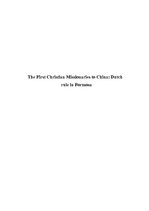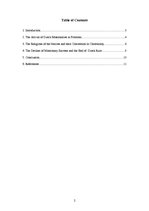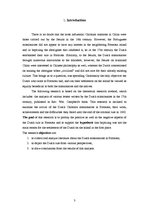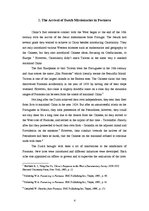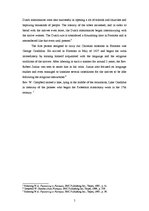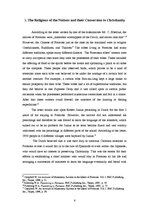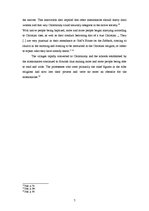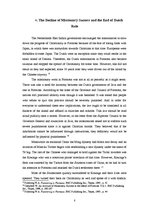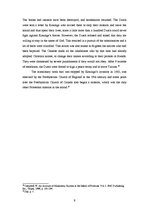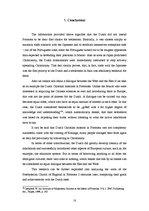| Nr. | Sadaļas nosaukums | Lpp. |
| 1. | Introduction | 3 |
| 2. | The Arrival of Dutch Missionaries in Formosa | 4 |
| 3. | The Religions of the Natives and their Conversion to Christianity | 6 |
| 4. | The Decline of Missionary Success and the End of Dutch Rule | 8 |
| 5. | Conclusion | 10 |
| 6. | References | 11 |
5. Conclusions
The information provided above signifies that the Dutch did not intend
Formosa to be their first choice for settlement. Basically, it was chosen simply to maintain trade contacts with the Japanese and to establish themselves someplace safe – out of the Portuguese zone, since the Portuguese turned out to be tougher opponents than expected in defending their positions in Macao. Also as soon as Japan prohibited Christianity, the Dutch missionaries were immediately instructed to stop actively spreading Christianity. This fact clearly proves, that, in fact, trade with the Japanese was the first priority to the Dutch and a settlement in Asia was absolutely essential for them.
Also we cannot talk about a dialogue between the West and the East if we take
as an example the Dutch Christian missions in Forsmosa. Unlike the Jesuits who were interested in acquiring the Chinese sciences as well and introducing them in Europe, this was not the point of interest for the Dutch. A dialogue can be carried out only between equal sides, which also have an equal amount of interest in each other. In this case, the Dutch considered themselves to be „gifted with a far higher degree of knowledge and understanding”20, which automatically means, that their settlement was based on imposing their truths without listening to what the native inhabitants have to say.
…
Similarly to the Jesuits who had settled in mainland China in the 16th century, the Dutch missionaries who came to Formosa (modern day Taiwan) a century later brought with them numerous innovations; however, whilst the Portuguese Jesuits on mainland showed interest towards the native culture, the Dutch concentrated on making the aborigine tribes „civilized” and did not concern themselves with Chinese scholarship. This brings about the question of weather spreading Christianity was the sole objective of the Dutch missionaries and can their settlement on the island be viewed as equally beneficial to both sides. With this paper the author will endeavor to find the answer to the aforementioned question. The research will be based on the theoretical research method and will include the analysis of various letters written by the Dutch missionaries in the 17th century published in two books compiled by the Scottish missionary Rev. William Campbell (1841–1921).

